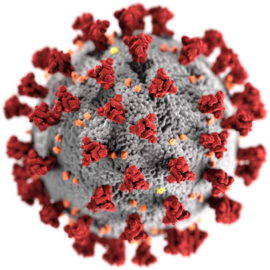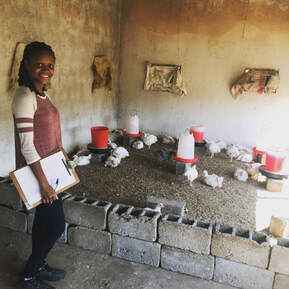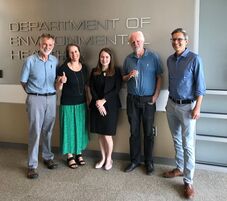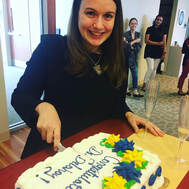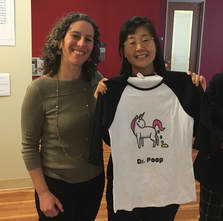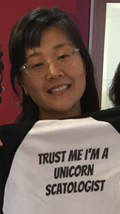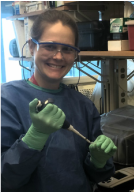NEWS, MEDIA COVERAGE AND EVENTS

May 2024: Mother Nature shows up for the Levy Lab Retreat
This Spring, members of the Levy Lab came together from Seattle, California, and Georgia at the University of Washington's Friday Harbor Labs to brainstorm new scientific approaches, discuss the latest developments in the field, review our commitments to diversity, equity, and inclusion, and enjoy each other's company. The latter activity was enhanced by gorgeous sunny weather and a powerful solar storm that brought the Northern Lights streaming across the skies of San Juan Island, and beyond, in a magical display.
This Spring, members of the Levy Lab came together from Seattle, California, and Georgia at the University of Washington's Friday Harbor Labs to brainstorm new scientific approaches, discuss the latest developments in the field, review our commitments to diversity, equity, and inclusion, and enjoy each other's company. The latter activity was enhanced by gorgeous sunny weather and a powerful solar storm that brought the Northern Lights streaming across the skies of San Juan Island, and beyond, in a magical display.

March 2024: Dr. Becca Philipsborn named a Macy Faculty Scholar
Levy Lab alum Dr. Becca Philipsborn, now Associate Professor of Pediatrics at Emory School of Medicine, was named a 2024 Macy Faculty Scholar. She will prepare learners to address the influences of climate change on human health and health equity through a longitudinal, interprofessional curriculum. The curriculum will be co-created with students. Becca has a long-standing commitment to education of medical students about connections between climate and health.
Levy Lab alum Dr. Becca Philipsborn, now Associate Professor of Pediatrics at Emory School of Medicine, was named a 2024 Macy Faculty Scholar. She will prepare learners to address the influences of climate change on human health and health equity through a longitudinal, interprofessional curriculum. The curriculum will be co-created with students. Becca has a long-standing commitment to education of medical students about connections between climate and health.

January 2024: Dr. Kelsey Jesser accepts new position as Clinical Assistant Professor at the University of Washington
Congratulations to Dr. Jesser on her appointment as Clinical Assistant Professor in the Department of Environmental and Occupational Health Sciences at UW as of January 1, 2024! Dr. Jesser is a former Levy Lab post doctoral fellow and we are excited to continue our collaborative research with her on environmental and within-host enteric pathogen dynamics in Ecuador and Mozambique. She will be teaching PHI 514 (determinants of health, ENV H 452/542 (detection and control of environmentally transmitted pathogens), and ENV H 440/545 (water, wastewater, and health).
Congratulations to Dr. Jesser on her appointment as Clinical Assistant Professor in the Department of Environmental and Occupational Health Sciences at UW as of January 1, 2024! Dr. Jesser is a former Levy Lab post doctoral fellow and we are excited to continue our collaborative research with her on environmental and within-host enteric pathogen dynamics in Ecuador and Mozambique. She will be teaching PHI 514 (determinants of health, ENV H 452/542 (detection and control of environmentally transmitted pathogens), and ENV H 440/545 (water, wastewater, and health).
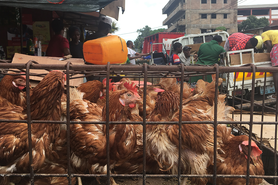
December 2023: When WASHing Is Not Enough - Science Selection in eph features two recent Levy Lab publications
In December, Environmental Health Perspectives published a Science Selection featuring two recent publications from the Levy Lab completed as a part of the CHEEP CHEEP research project. The two articles included in the commentary were written by lead authors Frederica Lamar and Kayoko Shioda, respectively, focusing on identifying exposure routes to enteropathogens of poultry origin in Mozambique. The commentary highlighted the contributions of the research to finding "ways to reduce [enteric] infection rates without affecting food and economic security" provided by poultry. This work was produced in collaboration with the Levy Lab research group (University of Washington), Freeman research group (Emory University), and Hermógenes Mucache and other collaborators at the Universidade Eduardo Mondlane (Mozambique).
In December, Environmental Health Perspectives published a Science Selection featuring two recent publications from the Levy Lab completed as a part of the CHEEP CHEEP research project. The two articles included in the commentary were written by lead authors Frederica Lamar and Kayoko Shioda, respectively, focusing on identifying exposure routes to enteropathogens of poultry origin in Mozambique. The commentary highlighted the contributions of the research to finding "ways to reduce [enteric] infection rates without affecting food and economic security" provided by poultry. This work was produced in collaboration with the Levy Lab research group (University of Washington), Freeman research group (Emory University), and Hermógenes Mucache and other collaborators at the Universidade Eduardo Mondlane (Mozambique).

August 2023: New WASH article collection published in ehp
The WASH collection from Environmental Health Perspectives highlights significant ehp publications exploring the "big picture", key findings on water, sanitation, and hygiene related topics, and the meaning of the "A" in WASH, from agriculture to antibiotics. Dr. Karen Levy curated the collection, and also serves as an Associate Editor for ehp, a journal that focuses on research examining the relationship between the environment and human health.
The WASH collection from Environmental Health Perspectives highlights significant ehp publications exploring the "big picture", key findings on water, sanitation, and hygiene related topics, and the meaning of the "A" in WASH, from agriculture to antibiotics. Dr. Karen Levy curated the collection, and also serves as an Associate Editor for ehp, a journal that focuses on research examining the relationship between the environment and human health.
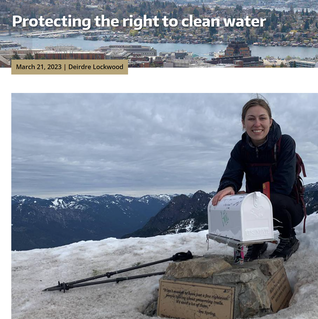
March 2023: Becky Kann featured on the DEOHS blog
This month, the UW Department of Environmental and Occupational Health Sciences (DEOHS) blog featured Levy Lab member Becky Kann and her work on the PAASIM project exploring how water infrastructure impacts health in Mozambique. Becky reflected on her most recent work, advised by Dr. Levy, looking at COVID-19 related WASH behaviors:
"We found that most people knew they should be practicing hand washing and social distancing, and the value of protecting themselves from the pandemic. But in places where they didn't have access to proper hand washing systems and water, they weren't able to do that. It highlighted the importance of having that infrastructure in future pandemics.
Promoting behaviors is one thing, but if you don't have the key infrastructure in place to support practicing those behaviors, people won't be able to protect themselves from infectious disease as best they can."
This month, the UW Department of Environmental and Occupational Health Sciences (DEOHS) blog featured Levy Lab member Becky Kann and her work on the PAASIM project exploring how water infrastructure impacts health in Mozambique. Becky reflected on her most recent work, advised by Dr. Levy, looking at COVID-19 related WASH behaviors:
"We found that most people knew they should be practicing hand washing and social distancing, and the value of protecting themselves from the pandemic. But in places where they didn't have access to proper hand washing systems and water, they weren't able to do that. It highlighted the importance of having that infrastructure in future pandemics.
Promoting behaviors is one thing, but if you don't have the key infrastructure in place to support practicing those behaviors, people won't be able to protect themselves from infectious disease as best they can."
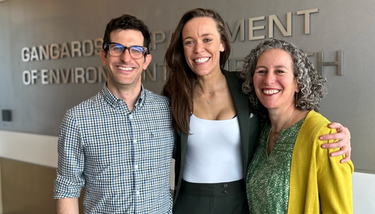
March 2023: Dr. Sydney Hubbard passes her dissertation defense
Lab member and Emory student Dr. Sydney Hubbard successfully defended her doctoral dissertation, "Evaluating the efficacy of water, sanitation, and hygiene interventions in the context of climate change with a focus on urban, coastal Mozambique" on March 24. Dr. Matthew Freeman and Dr. Karen Levy co-chaired the committee for Dr. Hubbard, who worked on the PAASIM project for her dissertation.
Lab member and Emory student Dr. Sydney Hubbard successfully defended her doctoral dissertation, "Evaluating the efficacy of water, sanitation, and hygiene interventions in the context of climate change with a focus on urban, coastal Mozambique" on March 24. Dr. Matthew Freeman and Dr. Karen Levy co-chaired the committee for Dr. Hubbard, who worked on the PAASIM project for her dissertation.
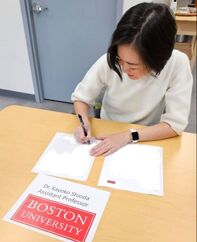
March 2023: Dr. Shioda accepts an Assistant Professor position at Boston University
Dr. Kayoko Shioda will be starting a position as Assistant Professor in the School of Public Health at Boston University starting in April, 2023. She will continue to work with Dr. Levy on One Health projects in Mozambique.
Dr. Shioda will be taking students and hiring postdocs, so if you are interested in infectious disease epidemiology/mathematical modeling, vaccine epidemiology, One Health, and climate health, she welcomes you to contact her directly at:
kshioda at bu dot edu
Dr. Kayoko Shioda will be starting a position as Assistant Professor in the School of Public Health at Boston University starting in April, 2023. She will continue to work with Dr. Levy on One Health projects in Mozambique.
Dr. Shioda will be taking students and hiring postdocs, so if you are interested in infectious disease epidemiology/mathematical modeling, vaccine epidemiology, One Health, and climate health, she welcomes you to contact her directly at:
kshioda at bu dot edu

March 2023: Dr. April Ballard passes her dissertation defense
Lab member and Emory student Dr. April Ballard successfully defended her doctoral dissertation, "Characterization and measurement of child exposure to zoonotic enteric pathogens in Esmeraldas Province, Ecuador" on March 1. Dr. Bethany Caruso, Assistant Professor at the Rollins School of Public Health, Emory, chaired, and Dr. Karen Levy served as a committee member for Dr. Ballard, who conducted qualitative and quantitative research on the animal exposures supplement of the ECoMiD study.
On the day of her defense, her first dissertation paper was published in the International Journal of Hygiene and Environmental Health.
Lab member and Emory student Dr. April Ballard successfully defended her doctoral dissertation, "Characterization and measurement of child exposure to zoonotic enteric pathogens in Esmeraldas Province, Ecuador" on March 1. Dr. Bethany Caruso, Assistant Professor at the Rollins School of Public Health, Emory, chaired, and Dr. Karen Levy served as a committee member for Dr. Ballard, who conducted qualitative and quantitative research on the animal exposures supplement of the ECoMiD study.
On the day of her defense, her first dissertation paper was published in the International Journal of Hygiene and Environmental Health.
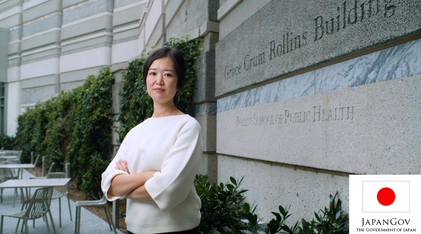
November 2022: Recognizing Dr. Kayoko Shioda
Kayoko Shioda, a postdoc working with Dr. Levy, was featured for her work as a woman in science in this video produced by the Japanese government, after she was awarded the Marie Sklodowska Curie Award.
This short documentary recognizes Dr. Shioda as"a trailblazer for Japanese women in the field of epidemiology. Whether working with the US Centers for Disease Control or WHO to fight Covid-19 and prevent future pandemics, Dr. Shioda is an inspiration for the next generation of young Japanese women to follow their passion into the sciences." We are proud to work closely with Dr. Shioda.
Kayoko Shioda, a postdoc working with Dr. Levy, was featured for her work as a woman in science in this video produced by the Japanese government, after she was awarded the Marie Sklodowska Curie Award.
This short documentary recognizes Dr. Shioda as"a trailblazer for Japanese women in the field of epidemiology. Whether working with the US Centers for Disease Control or WHO to fight Covid-19 and prevent future pandemics, Dr. Shioda is an inspiration for the next generation of young Japanese women to follow their passion into the sciences." We are proud to work closely with Dr. Shioda.
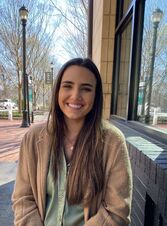
August 2022: Courtney Victor awarded ARCS Foundation Scholar Award
Lab member and Emory PhD student Courtney Victor received the ARCS Foundation Scholar Award for her work evaluating how drinking water quality and access can impact the development of the gut microbiome in young children in Mozambique. She is co-advised by Professors Karen Levy (UW) and Matthew Freeman (Emory).
The ARCs Foundation, a women-run nonprofit, says that they "provide unrestricted funding to help the country's brightest graduate and undergraduate students create new knowledge and innovative technologies." We congratulate Courtney on this well deserved recognition!
Lab member and Emory PhD student Courtney Victor received the ARCS Foundation Scholar Award for her work evaluating how drinking water quality and access can impact the development of the gut microbiome in young children in Mozambique. She is co-advised by Professors Karen Levy (UW) and Matthew Freeman (Emory).
The ARCs Foundation, a women-run nonprofit, says that they "provide unrestricted funding to help the country's brightest graduate and undergraduate students create new knowledge and innovative technologies." We congratulate Courtney on this well deserved recognition!
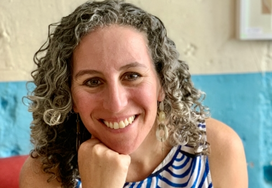
July 2022: Dr. Karen Levy promoted to Full Professor
Beginning in July, Dr. Levy became a Professor in the Department of Environmental and Occupational Health Sciences at the University of Washington School of Public Health. She was also appointed as an Adjunct Professor in the Department of Epidemiology, and continues to hold an adjunct appointment in the Department of Global Health at UW, as well in the Gangarosa Department of Environmental Health at the Rollins School of Public Health at Emory University.
Beginning in July, Dr. Levy became a Professor in the Department of Environmental and Occupational Health Sciences at the University of Washington School of Public Health. She was also appointed as an Adjunct Professor in the Department of Epidemiology, and continues to hold an adjunct appointment in the Department of Global Health at UW, as well in the Gangarosa Department of Environmental Health at the Rollins School of Public Health at Emory University.

June 2022: Levy Lab publications in the news
Levy Lab doctoral student Alyssa Miller and Principal Investigator Karen Levy recently authored a piece in Environmental Health Perspectives that was accompanied by a news article by Nate Seltenrich on Combined Sewer Overflows and Gastrointestinal Illness in Atlanta, Georgia.
The paper found that such overflows contribute to emergency department visits for gastrointestinal illness in Atlanta, particularly in affluent areas. Mr. Seltenrich reached out to lead author Alyssa Miller for comment on the findings: "This is likely due to the high prevalence of other factors conferring risk of GI illness in these communities,” says lead author Alyssa Miller, a PhD student in Environmental and Occupational Health Sciences at the University of Washington. For example, residents in more affluent areas may have more leisure time for recreational use of the river. They also may be more likely to have access to and seek medical care."
Mr. Seltenrich highlighted the need for precisely this kind of research, noting, "The findings shed light on a persistent yet largely invisible public health concern in Atlanta and more than 850 other municipalities across the United States with combined sewer systems... The need to understand the dynamics and health impacts of combined sewer overflows becomes more urgent as climate change increases the frequency and intensity of precipitation."
Levy Lab doctoral student Alyssa Miller and Principal Investigator Karen Levy recently authored a piece in Environmental Health Perspectives that was accompanied by a news article by Nate Seltenrich on Combined Sewer Overflows and Gastrointestinal Illness in Atlanta, Georgia.
The paper found that such overflows contribute to emergency department visits for gastrointestinal illness in Atlanta, particularly in affluent areas. Mr. Seltenrich reached out to lead author Alyssa Miller for comment on the findings: "This is likely due to the high prevalence of other factors conferring risk of GI illness in these communities,” says lead author Alyssa Miller, a PhD student in Environmental and Occupational Health Sciences at the University of Washington. For example, residents in more affluent areas may have more leisure time for recreational use of the river. They also may be more likely to have access to and seek medical care."
Mr. Seltenrich highlighted the need for precisely this kind of research, noting, "The findings shed light on a persistent yet largely invisible public health concern in Atlanta and more than 850 other municipalities across the United States with combined sewer systems... The need to understand the dynamics and health impacts of combined sewer overflows becomes more urgent as climate change increases the frequency and intensity of precipitation."
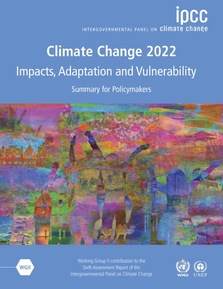
March 2022: IPCC WGII Sixth Assessment Report released
The Intergovernmental Panel on Climate Change (IPCC) released its WGII 6th Assessment Report, for which Dr. Levy served as a contributing author, on Chapter 16: Key Risks Across Sectors and Regions. Key highlights from the text on severe risks:
"Climate change would lead to severe risks of morbidity and mortality caused by waterborne diseases, particularly for diarrhoea in children in many lower- and middle-income countries (LMICs) and where vulnerability remains high (medium confidence)."
"However, risks will be highly dependent on development trajectories, given that waterborne disease transmission is exacerbated by lack of clean drinking water and sanitation systems, inadequate food safety and hygiene conditions, lack of flood and drought protections, and interactions with other risks such as cholera outbreaks, food insecurity, and infrastructure damage. Climate change threatens the progress that has been made toward reducing the burden of diarrhea"
The Intergovernmental Panel on Climate Change (IPCC) released its WGII 6th Assessment Report, for which Dr. Levy served as a contributing author, on Chapter 16: Key Risks Across Sectors and Regions. Key highlights from the text on severe risks:
"Climate change would lead to severe risks of morbidity and mortality caused by waterborne diseases, particularly for diarrhoea in children in many lower- and middle-income countries (LMICs) and where vulnerability remains high (medium confidence)."
"However, risks will be highly dependent on development trajectories, given that waterborne disease transmission is exacerbated by lack of clean drinking water and sanitation systems, inadequate food safety and hygiene conditions, lack of flood and drought protections, and interactions with other risks such as cholera outbreaks, food insecurity, and infrastructure damage. Climate change threatens the progress that has been made toward reducing the burden of diarrhea"
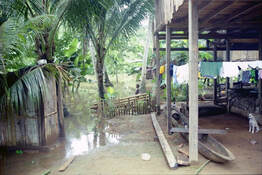
September 2021: Combating diarrhea = climate change adaptation
PATH's DEFEATDD team recently featured a blog post by Dr. Levy about the potential increase in the diarrheal disease burden due to climate change. She writes:
"...if a disease that we already have methods to control might increase due to climate change, then a redoubling of efforts to combat diarrhea could—and should—be considered a form of climate change adaptation."
Catch the full post here!
PATH's DEFEATDD team recently featured a blog post by Dr. Levy about the potential increase in the diarrheal disease burden due to climate change. She writes:
"...if a disease that we already have methods to control might increase due to climate change, then a redoubling of efforts to combat diarrhea could—and should—be considered a form of climate change adaptation."
Catch the full post here!
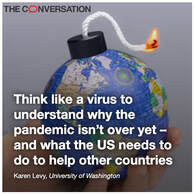
May 2021: Think like a pathogen
Students in Dr. Levy's courses often hear the advice to "Think like a pathogen" to understand infectious diseases. She published a new article in The Conversation explaining what this means for the COVID-19 pandemic and why it suggests that we need to get vaccines to the entire global population.
Students in Dr. Levy's courses often hear the advice to "Think like a pathogen" to understand infectious diseases. She published a new article in The Conversation explaining what this means for the COVID-19 pandemic and why it suggests that we need to get vaccines to the entire global population.
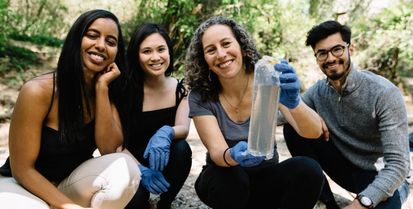
February 2021: Dr. Levy featured on the DEOHS blog
Read the full post by Jolayne Houtz, featured on the Department of Environmental and Occupational Health Sciences blog and documenting Dr. Levy's career trajectory, research interests, and plans for working at UW.
“What really gets me up in the morning is the chance to think about cool bugs and the biology. That’s so interesting to me,” Levy said. “But it’s also important to understand that the biology of infectious diseases is fundamentally affected by both social and environmental conditions.”
Read the full post by Jolayne Houtz, featured on the Department of Environmental and Occupational Health Sciences blog and documenting Dr. Levy's career trajectory, research interests, and plans for working at UW.
“What really gets me up in the morning is the chance to think about cool bugs and the biology. That’s so interesting to me,” Levy said. “But it’s also important to understand that the biology of infectious diseases is fundamentally affected by both social and environmental conditions.”
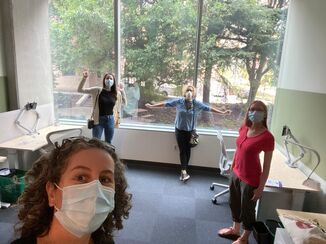
January 2021: Setting up and settling in
The team explored our future new home at UW in the Hans Rosling Center for Population Health at a safe distance this summer. This Autumn, Dr. Levy taught her first course at UW - on Water, Wastewater & Health.
The team explored our future new home at UW in the Hans Rosling Center for Population Health at a safe distance this summer. This Autumn, Dr. Levy taught her first course at UW - on Water, Wastewater & Health.

June 2020: WE ARE MOVING TO UNIVERSITY OF WASHINGTON !
The Levy Lab will be moving to the Department of Environmental and Occupational Health Sciences at the University of Washington on June 1, 2020. We will miss our colleagues at Emory and Rollins School of Public Health, but will maintain ongoing collaborations with them while we build new ones at UW.
The Levy Lab will be moving to the Department of Environmental and Occupational Health Sciences at the University of Washington on June 1, 2020. We will miss our colleagues at Emory and Rollins School of Public Health, but will maintain ongoing collaborations with them while we build new ones at UW.
|
March 2020: COVID-19
Dr. Levy is curating an open source resource for keeping up to date on scientific articles on COVID-19/SARS-CoV-2. [link] Science Magazine coverage of Open Letter from the Infectious Disease Scientific and Medical Community on COVID-19, organized by Dr. Levy, along with Kacey Ernst and Carlos del Rio [link] Dr. Levy quoted in NBC News about concerns for UPS drivers from COVID-19 [link] and about implications of lack of testing in American Samoa [link]. She is quoted in multiple articles in the online magazine Elite Daily on coronavirus [link], [link], [link], [link], [link], [link], [link]. 11Alive's the "Why Guy" talks with Dr. Levy about why wash your hands for 20 seconds? [link] and why do viruses mutate? [link] and why is there no cure for the common cold? [link] She is quoted in U.S News and World report on the threat of COVID-19 for the many Americans with poor water access. [link] [twitter post] Dr. Levy appears on "In Quarantine" podcast with Steve Bodow [link] |
|
February 2020: Announcing Frederica (Freddy) Lamar's induction into the 2020 Emory Bouchet Graduate Honor Society.
The Bouchet Honor Society (BHS) is in honor of Dr. Edward Bouchet, the first African American to earn a doctorate (Physics, Yale University, 1876) from an American university. The BHS acknowledges outstanding scholarly achievement and promotes diversity and excellence in doctoral education and the professoriate. It is a network of preeminent scholars who exemplify academic and personal excellence, foster environments of support and serve [link to website]. Freddy's long term research goal is to advance the scientific knowledge of waterborne and foodborne pathogens causing diarrheal illnesses in low and middle income settings. Her long term career plan is to be an independent research scientist at an academic institution or internationally- recognized health agency and set guidelines for environmental factors and pathogens affecting water sanitation and hygiene and food safety. |
November 2019: Georgia Tech press release on our recently published paper
Metagenomics unlocks unknowns of diarrheal disease cases in children [Link to article]
Fall 2019: Rollins Public Health magazine features our collaborative work with Georgia Tech
Our collaborative work with Dr. Kostas Konstantinidis and Dr. Joe Brown was featured in the story "Driving Innovation" [Link to article]
Metagenomics unlocks unknowns of diarrheal disease cases in children [Link to article]
Fall 2019: Rollins Public Health magazine features our collaborative work with Georgia Tech
Our collaborative work with Dr. Kostas Konstantinidis and Dr. Joe Brown was featured in the story "Driving Innovation" [Link to article]
Spring 2019: Rollins Public Health Magazine features Pooper Scoopers projects
Levy Lab Pooper Scooper Alumnus Debbie Lee featured in the story "Going Glocal: WASH" [Link to article]
Cheep Cheep study featured in the story "Why did Rollins researchers cross the road?" [Link to article]
Levy Lab Pooper Scooper Alumnus Debbie Lee featured in the story "Going Glocal: WASH" [Link to article]
Cheep Cheep study featured in the story "Why did Rollins researchers cross the road?" [Link to article]

December, 2018: New grant from the Bill & Melinda Gates Foundation
Dr. Levy and Dr. Matthew Freeman have been awarded a new $600,000 grant from the Bill & Melinda Gates Foundation for their new project, ChEEP ChEEP (Chicken Exposures and Enteric Pathogens in Children Exposed through Environmental Pathways) [Link to Emory press release]
December 6, 2018: Op-Ed on Bottled Water
Dr. Levy published an Op-Ed in the Atlanta Journal Constitution: Keep drinking Atlanta's tap water
August 2018: Dr. Levy featured on AAAS blog
Some thoughts on why it's tough to fit in public engagement work, but why it's important [Link to article]
Dr. Levy and Dr. Matthew Freeman have been awarded a new $600,000 grant from the Bill & Melinda Gates Foundation for their new project, ChEEP ChEEP (Chicken Exposures and Enteric Pathogens in Children Exposed through Environmental Pathways) [Link to Emory press release]
December 6, 2018: Op-Ed on Bottled Water
Dr. Levy published an Op-Ed in the Atlanta Journal Constitution: Keep drinking Atlanta's tap water
August 2018: Dr. Levy featured on AAAS blog
Some thoughts on why it's tough to fit in public engagement work, but why it's important [Link to article]
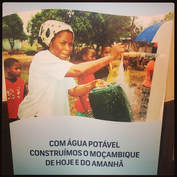
June 2018: New NIAID R01 grant to study the impacts of a water supply improvement project in Mozambique
Our new $3.7 million grant from the National Institute of Allergy and Infectious Diseases will allow us to study how a large World Bank-funded water supply improvement project in Mozambique affects the infant gut, and subsequent health outcomes. The project is co-led by Matthew Freeman at Emory, and is being carried out in collaboration with the World Bank, Georgia Institute of Technology, University of Nevada Reno and Mozambican water and health agencies. [Link to Emory press release]
(Photo of poster at FIPAG, the Mozambican water utility)
Our new $3.7 million grant from the National Institute of Allergy and Infectious Diseases will allow us to study how a large World Bank-funded water supply improvement project in Mozambique affects the infant gut, and subsequent health outcomes. The project is co-led by Matthew Freeman at Emory, and is being carried out in collaboration with the World Bank, Georgia Institute of Technology, University of Nevada Reno and Mozambican water and health agencies. [Link to Emory press release]
(Photo of poster at FIPAG, the Mozambican water utility)
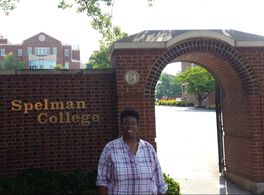
May 2018: Jeticia Sistrunk hired at Spelman College
Congratulations to FIRST postdoc Jeticia Sistrunk, who was recently hired as an Assistant Professor of Biology at Spelman College. She will fill a position in genetics, computational biology & bioinformatics. We are very excited for her!
Congratulations to FIRST postdoc Jeticia Sistrunk, who was recently hired as an Assistant Professor of Biology at Spelman College. She will fill a position in genetics, computational biology & bioinformatics. We are very excited for her!
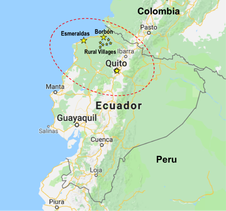
May 2018: New NIAID R01 grant on the gut microbiome in Ecuadorian children
We have been granted a $3.5 million grant from the National Institute of Allergy and Infectious Diseases, in collaboration with Joe Eisenberg at University of Michigan, Gabriel Trueba at Universidad San Francisco de Quito, and Kostas Konstantinidis at Georgia Tech. Over the next five years we will be recruiting a cohort of newborn infants along a rural-urban gradient in Ecuador to study environmental influences on the development of the gut microbiome in children, and how the infant gut microbiome influences responses to enteric pathogen infections. [Link to Emory press release]
We have been granted a $3.5 million grant from the National Institute of Allergy and Infectious Diseases, in collaboration with Joe Eisenberg at University of Michigan, Gabriel Trueba at Universidad San Francisco de Quito, and Kostas Konstantinidis at Georgia Tech. Over the next five years we will be recruiting a cohort of newborn infants along a rural-urban gradient in Ecuador to study environmental influences on the development of the gut microbiome in children, and how the infant gut microbiome influences responses to enteric pathogen infections. [Link to Emory press release]
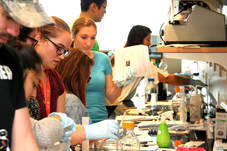
January 2018: EH548 listed as an Emory "cool course"
Dr. Levy's course EH548: Research Methods for Studies of Water & Health was selected as one of Emory University's "cool courses" for Spring 2018. [Link to article]
Dr. Levy's course EH548: Research Methods for Studies of Water & Health was selected as one of Emory University's "cool courses" for Spring 2018. [Link to article]
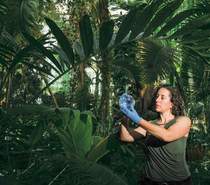
October 2017: Feature story in RSPH Magazine on Climate & Health
Our group's work was featured alongside that of other Dept. of Environmental health colleagues on climate and health in the Rollins School of Public Health Fall 2017 Magazine. (Note that I tried to convince the photographer to use a photo where I wasn't holding up a beaker completely unrelated to the kind of water sampling and analysis that we do) [Link to article]
Our group's work was featured alongside that of other Dept. of Environmental health colleagues on climate and health in the Rollins School of Public Health Fall 2017 Magazine. (Note that I tried to convince the photographer to use a photo where I wasn't holding up a beaker completely unrelated to the kind of water sampling and analysis that we do) [Link to article]
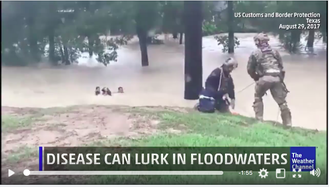
September, 2017: Dr. Levy comments on the health effects of Hurricane Harvey
Dr. Levy spoke to reporters at AP News and The Weather Channel about the potential threats to human health posed by the devastating flooding caused by Hurricane Harvey. [Link to NYT-AP News story] [Link to The Weather Channel video]
Dr. Levy spoke to reporters at AP News and The Weather Channel about the potential threats to human health posed by the devastating flooding caused by Hurricane Harvey. [Link to NYT-AP News story] [Link to The Weather Channel video]
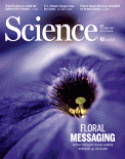
June, 2017: Dr. Levy appears in Science Magazine
Dr. Levy's public engagement work was featured in Science Magazine's News & Notes section. One of the featured quotes: “It's important to build out a structure that incentivizes and trains us to communicate our work with a broader audience, especially given current concerns about the public's lack of esteem for science.” [Link to article]
Dr. Levy's public engagement work was featured in Science Magazine's News & Notes section. One of the featured quotes: “It's important to build out a structure that incentivizes and trains us to communicate our work with a broader audience, especially given current concerns about the public's lack of esteem for science.” [Link to article]
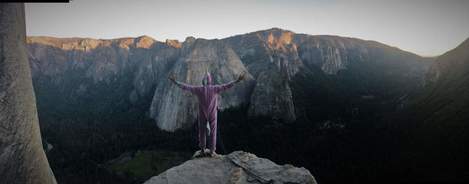
June, 2017: Forest Altherr represents the Levy Lab as "The Climber in the Unicorn Suit"
The pooping unicorn is our official lab mascot, and Levy Lab alum Forest Altherr represented us well when he donned a unicorn suit on the Freerider route of El Capitan. Little did he know that he would wake up to encounter Alex Honnold on his historic free-solo of the famous wall. The story was covered in the REI blog, although one correction is needed: the unicorn was our lab mascot long before we saw the Squatty Potty video.
The pooping unicorn is our official lab mascot, and Levy Lab alum Forest Altherr represented us well when he donned a unicorn suit on the Freerider route of El Capitan. Little did he know that he would wake up to encounter Alex Honnold on his historic free-solo of the famous wall. The story was covered in the REI blog, although one correction is needed: the unicorn was our lab mascot long before we saw the Squatty Potty video.
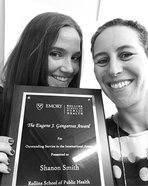
May, 2017: Shanon Smith wins the Gangarosa Award
Congratulations to Shanon Smith, Pooper Scooper extraordinaire, on receiving the Eugene J. Gangarosa, M.D. Student Award for Excellence in International Health. This award is presented to the graduating student who has demonstrated a creative approach to solving public health problems and who shows promise for outstanding service in the international arena. She was nominated for her work in the Levy and Leon research groups.
Congratulations to Shanon Smith, Pooper Scooper extraordinaire, on receiving the Eugene J. Gangarosa, M.D. Student Award for Excellence in International Health. This award is presented to the graduating student who has demonstrated a creative approach to solving public health problems and who shows promise for outstanding service in the international arena. She was nominated for her work in the Levy and Leon research groups.
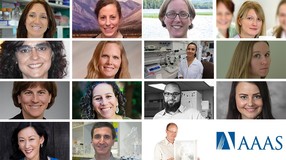
February, 2017: Dr. Levy selected as AAAS Leshner Public Engagement Fellow
Dr. Levy will be one of 15 infectious disease researchers in the second cohort of the AAAS Alan I. Leshner Leadership Institute for Public Engagement with Science. The fellowship involves a week-long training in Washington, D.C., followed by a year of carrying out public scholarship activities with support from AAAS. [Emory press release] [AAAS press release]
Dr. Levy will be one of 15 infectious disease researchers in the second cohort of the AAAS Alan I. Leshner Leadership Institute for Public Engagement with Science. The fellowship involves a week-long training in Washington, D.C., followed by a year of carrying out public scholarship activities with support from AAAS. [Emory press release] [AAAS press release]
|
September, 2016: CDC hires Levy Lab postdoc Dr. Mia Mattioli
After a year-long post-doc with Dr. Levy, Mia Catharine Mattioli has accepted a position at the CDC. She will serve as the activity lead for domestic water, sanitation, and hygiene laboratory projects in the Environmental Microbiology Laboratory of the Waterborne Disease Prevention Branch within the Division of Foodborne, Waterborne, and Environmental Diseases and the National Center for Emerging and Zoonotic Infectious Diseases. At the CDC, she will focus on environmental health research areas such as irrigation water, wastewater, recreational water, soil, food, drinking water distribution systems, and development of advanced molecular detection technologies. She will also serve as an adjunct assistant professor in the Environmental Health Department of Emory’s Rollins School of Public Health. |
September, 2016: New grant from the Bill & Melinda Gates Foundation
Dr. Levy and Dr. Matthew Freeman have been awarded a small grant from the Gates Foundation to examine the impact of human exposure to animal waste in community settings. If we could contain all human waste, what risk would remain from exposure to animal feces
Dr. Levy and Dr. Matthew Freeman have been awarded a small grant from the Gates Foundation to examine the impact of human exposure to animal waste in community settings. If we could contain all human waste, what risk would remain from exposure to animal feces

April, 2016: New pilot grant from Emory HERCULES + C-CHEM2
The Levy lab has been awarded a pilot project from Emory HERCULES and C-CHEM2 for our work this summer in Peru on the influence of water quality on the infant gut microbiome. [Link to story]
The Levy lab has been awarded a pilot project from Emory HERCULES and C-CHEM2 for our work this summer in Peru on the influence of water quality on the infant gut microbiome. [Link to story]
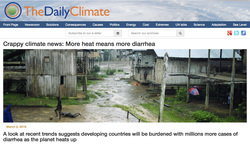
March 2, 2016: The Daily Climate coverage
Our new paper on climatic drivers of pathogenic E. coli was covered as a feature story by The Daily Climate. [Link to story]
Our new paper on climatic drivers of pathogenic E. coli was covered as a feature story by The Daily Climate. [Link to story]
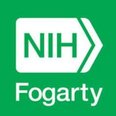
October 8, 2015: GeoHealth Hub grants announced
Dr. Levy is part of a team of scientists recently awarded a grant for training and research in environmental health based in Peru, led by Kyle Steenland (Emory) and Gustavo Gonzales (Universidad Peruana Cayetano Heredia) and in collaboration with researchers from UGA and Johns Hopkins University. [NIH press release] [Emory press release]
Dr. Levy is part of a team of scientists recently awarded a grant for training and research in environmental health based in Peru, led by Kyle Steenland (Emory) and Gustavo Gonzales (Universidad Peruana Cayetano Heredia) and in collaboration with researchers from UGA and Johns Hopkins University. [NIH press release] [Emory press release]
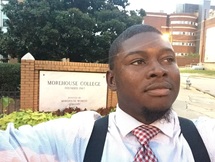
August, 2015: Levy Lab alum Ethell Vereen, Jr. lands a job as Assistant Professor
@ Morehouse College!
Congrats to Ethell. Morehouse is lucky to have this fabulous teacher on their faculty.
April 9, 2015: Climate@Emory in the News
Emory News Service features the Climate@Emory initiative
October 13, 2014: UNC Side Session on Climate Change & Diarrheal Diseases
Dr. Levy, in collaboration with Jonathan Mellor (Yale) and Kristen Downs (UNC) hosted a side session at the UNC Water & Health conference on Climate Change & Diarrheal Diseases. Aside from the organizers, speakers included Masahiro Hashizume (Nagasaki University), Mark Elliott (University of Alabama), Tim Wade (US EPA), Jesse Bell (NOAA), Beth Carlton (Univ. of Colorado Denver), Rachel Noble (UNC), and Jared Bowden (UNC). Michael Emch (UNC) moderated the panel discussion.
October 6, 2014: Dr. Vincent Hill at CDC in collaboration with Dr. Levy awarded grant from the Center for Produce Safety
The grant will support application of ultrafiltration methods developed in Dr. Vincent Hill's laboratory at CDC to agricultural waters. The title of the project is "Improved sampling and analytical methods for testing agricultural water for pathogens, surrogates and source tracking indicators." [Press release]
July 7, 2014: Dr. Molly Kile in collaboration with Dr. Levy awarded R01 from NIEHS for study of arsenic
This study will examine the effects of prenatal and early life exposure to arsenic to clinically relevant outcomes including infectious disease morbidity and antibody response to routine childhood vaccinations in children up to age 5 years. [More information]
June, 2014: Levy Lab alum Gouthami Rao is off to Kenya!
Gouthami will be working with Innovations for Poverty Action as the lab coordinator for the WASH Benefits project. Congrats to Gouthami and we hope you have a fantastic experience.
May 13, 2014: Dr. Justin Remais in collaboration with Dr. Levy awarded $2.3 million grant from NSF
This project, funded through the NSF Water Sustainability and Climate program, will develop new approaches for analyzing the complex, dynamic linkages between climate, hydrology and disease transmission in changing environments using existing data from field sites in China and Ecuador. [Press Release]
@ Morehouse College!
Congrats to Ethell. Morehouse is lucky to have this fabulous teacher on their faculty.
April 9, 2015: Climate@Emory in the News
Emory News Service features the Climate@Emory initiative
October 13, 2014: UNC Side Session on Climate Change & Diarrheal Diseases
Dr. Levy, in collaboration with Jonathan Mellor (Yale) and Kristen Downs (UNC) hosted a side session at the UNC Water & Health conference on Climate Change & Diarrheal Diseases. Aside from the organizers, speakers included Masahiro Hashizume (Nagasaki University), Mark Elliott (University of Alabama), Tim Wade (US EPA), Jesse Bell (NOAA), Beth Carlton (Univ. of Colorado Denver), Rachel Noble (UNC), and Jared Bowden (UNC). Michael Emch (UNC) moderated the panel discussion.
October 6, 2014: Dr. Vincent Hill at CDC in collaboration with Dr. Levy awarded grant from the Center for Produce Safety
The grant will support application of ultrafiltration methods developed in Dr. Vincent Hill's laboratory at CDC to agricultural waters. The title of the project is "Improved sampling and analytical methods for testing agricultural water for pathogens, surrogates and source tracking indicators." [Press release]
July 7, 2014: Dr. Molly Kile in collaboration with Dr. Levy awarded R01 from NIEHS for study of arsenic
This study will examine the effects of prenatal and early life exposure to arsenic to clinically relevant outcomes including infectious disease morbidity and antibody response to routine childhood vaccinations in children up to age 5 years. [More information]
June, 2014: Levy Lab alum Gouthami Rao is off to Kenya!
Gouthami will be working with Innovations for Poverty Action as the lab coordinator for the WASH Benefits project. Congrats to Gouthami and we hope you have a fantastic experience.
May 13, 2014: Dr. Justin Remais in collaboration with Dr. Levy awarded $2.3 million grant from NSF
This project, funded through the NSF Water Sustainability and Climate program, will develop new approaches for analyzing the complex, dynamic linkages between climate, hydrology and disease transmission in changing environments using existing data from field sites in China and Ecuador. [Press Release]
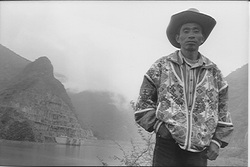
January 17, 2014: Great news from Guatemala!
With the passage of the omnibus appropriations bill, the US Senate instructed the World Bank and Inter-American Development Bank to support reparations for people affected by the Chixoy Dam in Guatemala. In 1982, 444 Maya Achi people of Guatemala were massacred to make way for the Chixoy Dam, a project financed by these banks. Since then, the survivors have been fighting for reparations as a way to begin to right the injustices they still continue to live with from this project. Dr. Levy spent the summer of 1999 with Cristobal Osorio Sanchez, carrying out interviews with people who had lost access to their land as a result of the construction of the Chixoy Dam, to document the ecology of the pre-dam landscape and understand the impacts to the Maya Achi community of the loss of access to the river's natural resources, and wrote about the reparations campaign in the San Francisco Chronicle. International Rivers campaign director Monti Aguirre writes about the big victory for everyone has worked so hard on this campaign in a blog post.
With the passage of the omnibus appropriations bill, the US Senate instructed the World Bank and Inter-American Development Bank to support reparations for people affected by the Chixoy Dam in Guatemala. In 1982, 444 Maya Achi people of Guatemala were massacred to make way for the Chixoy Dam, a project financed by these banks. Since then, the survivors have been fighting for reparations as a way to begin to right the injustices they still continue to live with from this project. Dr. Levy spent the summer of 1999 with Cristobal Osorio Sanchez, carrying out interviews with people who had lost access to their land as a result of the construction of the Chixoy Dam, to document the ecology of the pre-dam landscape and understand the impacts to the Maya Achi community of the loss of access to the river's natural resources, and wrote about the reparations campaign in the San Francisco Chronicle. International Rivers campaign director Monti Aguirre writes about the big victory for everyone has worked so hard on this campaign in a blog post.
November 20, 2013: New paper out on the relationship between heavy rainfall and diarrheal disease
We determined that heavy rainfall was associated with increased cases of diarrhea when it occurred after a dry period but decreased cases of diarrhea when it occurred after a wet period, and the health impacts of heavy rainfall were reduced in communities where more people treated their drinking wate . Our findings highight the need to account for both social and biophysical factors when evaluating the effects of climate on disease. [Press Release] [NewsDaily story] [E4C story]
September 25, 2013: Dr. Levy and colleagues at UGA awarded two grants from the Center for Produce Safety
Two grants will support work by Dr. Levy in collaboration with Dr. George Vellidis at University of Georgia and other colleagues. The titles of the sister projects are "Does Salmonella move through the irrigation systems of mixed produce farms of the Southeastern United States?" and "Does splash from overhead sprinkler irrigation systems contaminate produce with Salmonella in the Southeastern United States?" [More information]
September 4, 2013: Dr. Levy appears on NBC Nightly News
June 15, 2013: Dr. Levy is awarded a K01 Career Grant from the National Institute of Allergy and Infectious Diseases (NIAID)
The grant will support Dr. Levy's career development for five years, as well as a research project that will investigate the role that human travel between urban and rural regions plays in determining the distribution of circulating strains of pathogenic E. coli in northern coastal Ecuador. The research will provide insights into biological and social processes involved in the regional transmission of diarrheal diseases. [More information]
June 2, 2013: The Daily Beast Op-Ed on the Infant Microbiome
"My Baby, My Microbiome"
We determined that heavy rainfall was associated with increased cases of diarrhea when it occurred after a dry period but decreased cases of diarrhea when it occurred after a wet period, and the health impacts of heavy rainfall were reduced in communities where more people treated their drinking wate . Our findings highight the need to account for both social and biophysical factors when evaluating the effects of climate on disease. [Press Release] [NewsDaily story] [E4C story]
September 25, 2013: Dr. Levy and colleagues at UGA awarded two grants from the Center for Produce Safety
Two grants will support work by Dr. Levy in collaboration with Dr. George Vellidis at University of Georgia and other colleagues. The titles of the sister projects are "Does Salmonella move through the irrigation systems of mixed produce farms of the Southeastern United States?" and "Does splash from overhead sprinkler irrigation systems contaminate produce with Salmonella in the Southeastern United States?" [More information]
September 4, 2013: Dr. Levy appears on NBC Nightly News
June 15, 2013: Dr. Levy is awarded a K01 Career Grant from the National Institute of Allergy and Infectious Diseases (NIAID)
The grant will support Dr. Levy's career development for five years, as well as a research project that will investigate the role that human travel between urban and rural regions plays in determining the distribution of circulating strains of pathogenic E. coli in northern coastal Ecuador. The research will provide insights into biological and social processes involved in the regional transmission of diarrheal diseases. [More information]
June 2, 2013: The Daily Beast Op-Ed on the Infant Microbiome
"My Baby, My Microbiome"
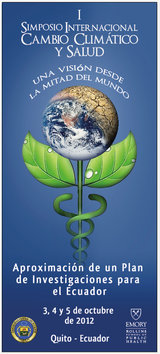
October 10, 2012: Climate and Health Symposium
Dr. Levy and colleagues at the Universidad Central del Ecuador sponsored the International Symposium on Climate Change and Health: A Vision from the Center of the World, held October 3-5, 2012 in Quito Ecuador. The symposium was a part of the NIH Fogarty International Center funded project, “Social Vulnerability and Climatic Drivers of Enteric Disease in Rural Ecuador.” Many high-level Ecuadorian government representatives attended and gave presentations at the conference, including Mercy Borbor Córdova, Vice-Minister of the Environment, Fander Falconi, National Secretary of Development, and María Fernanda Espinosa, Minister of Natural and Cultural Resources. Dr. Levy spoke about her work on climate and health, as did Dr. Justin Remais, also an assistant professor in the EH Department. Other international speakers included Gino Marinucci, representing the CDC Climate and Health program, Alexander von Hildebrand of the Pan American Health Organization, Patricia Romero-Lankao, a sociologist at the National Center for Atmospheric Research (NCAR) and member of the Intergovernmental Panel on Climate Change (IPCC), Patricia Abrutsky of the National University of San Martín, Argentina, and Ricardo Bertolino, Subsecretary for the Environment for the City of Rosario, Argentina. The symposium was covered by many national media outlets of Ecuador, and the President of Ecuador even posted an announcement about the event to his Facebook feed.
Dr. Levy and colleagues at the Universidad Central del Ecuador sponsored the International Symposium on Climate Change and Health: A Vision from the Center of the World, held October 3-5, 2012 in Quito Ecuador. The symposium was a part of the NIH Fogarty International Center funded project, “Social Vulnerability and Climatic Drivers of Enteric Disease in Rural Ecuador.” Many high-level Ecuadorian government representatives attended and gave presentations at the conference, including Mercy Borbor Córdova, Vice-Minister of the Environment, Fander Falconi, National Secretary of Development, and María Fernanda Espinosa, Minister of Natural and Cultural Resources. Dr. Levy spoke about her work on climate and health, as did Dr. Justin Remais, also an assistant professor in the EH Department. Other international speakers included Gino Marinucci, representing the CDC Climate and Health program, Alexander von Hildebrand of the Pan American Health Organization, Patricia Romero-Lankao, a sociologist at the National Center for Atmospheric Research (NCAR) and member of the Intergovernmental Panel on Climate Change (IPCC), Patricia Abrutsky of the National University of San Martín, Argentina, and Ricardo Bertolino, Subsecretary for the Environment for the City of Rosario, Argentina. The symposium was covered by many national media outlets of Ecuador, and the President of Ecuador even posted an announcement about the event to his Facebook feed.
September 26, 2012: Huffington Post Op-Ed on Organic Foods
"Let's Ask the Right Questions about Organics and Health"
September 25, 2012: GeoHealth Hub grant
Dr. Levy and EH faculty member Kyle Steenland (PI) were funded by the Fogarty International Center for their work to create a GEOHealth environmental and occupational research and training hub, in collaboration with collaborators at University of Chile and University of Georgia. [More information]
July 3, 2012: Public Voices Fellowship
Dr. Levy has been selected to participate as a fellow in the Public Voices Public Scholarship Initiative, a program of the Op/Ed Project. She is looking forward to writing op-eds and engaging in other forms of public scholarship.
"Let's Ask the Right Questions about Organics and Health"
September 25, 2012: GeoHealth Hub grant
Dr. Levy and EH faculty member Kyle Steenland (PI) were funded by the Fogarty International Center for their work to create a GEOHealth environmental and occupational research and training hub, in collaboration with collaborators at University of Chile and University of Georgia. [More information]
July 3, 2012: Public Voices Fellowship
Dr. Levy has been selected to participate as a fellow in the Public Voices Public Scholarship Initiative, a program of the Op/Ed Project. She is looking forward to writing op-eds and engaging in other forms of public scholarship.
September 27, 2011: A paper that Dr. Levy co-authored showing that the prevalence of antibiotic resistant enteric bacteria was 80% higher in less remote communities than in more remote communities in rural Ecuador was covered by Science Magazine.

August, 2011:
The Environs Gallery that Dr. Levy established in the Environmental Health Department break room was featured in EMORY Public Health magazine
The Environs Gallery that Dr. Levy established in the Environmental Health Department break room was featured in EMORY Public Health magazine
August 12, 2011: Climate & Health grant
Dr. Levy has received an R21 grant from the Fogarty International Center for her project entitled “Social Vulnerability and Climatic Drivers of Enteric Disease in Rural Ecuador”
July 8, 2011: Center for Produce Safety grant
Dr. Levy and collaborator George Vellidis at UGA were awarded a grant from the Center for Produce Safety entitled “Evaluation of sampling protocol to provide science-based metrics for use in identification of Salmonella in irrigation water testing programs in mixed produce farms in the Suwannee River watershed.”
Dr. Levy has received an R21 grant from the Fogarty International Center for her project entitled “Social Vulnerability and Climatic Drivers of Enteric Disease in Rural Ecuador”
July 8, 2011: Center for Produce Safety grant
Dr. Levy and collaborator George Vellidis at UGA were awarded a grant from the Center for Produce Safety entitled “Evaluation of sampling protocol to provide science-based metrics for use in identification of Salmonella in irrigation water testing programs in mixed produce farms in the Suwannee River watershed.”
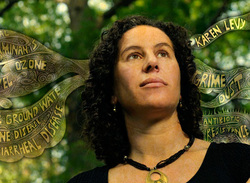
June, 2011:
Dr. Levy was featured alongside other EH Department faculty in an article entitled “Adaptation” in EMORY Health magazine
Dr. Levy was featured alongside other EH Department faculty in an article entitled “Adaptation” in EMORY Health magazine
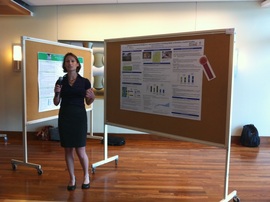
April 13, 2011: Kate Robb wins EH Award for Research Excellence
Congratulations to Kate Robb on winning the Award for Research Excellence in Environmental Health, a department-wide honor recognizing a graduating MPH or MSPH student in Environmental Health for their research achievements and scientific contribution to solving pressing local, regional or global environmental health challenges
Congratulations to Kate Robb on winning the Award for Research Excellence in Environmental Health, a department-wide honor recognizing a graduating MPH or MSPH student in Environmental Health for their research achievements and scientific contribution to solving pressing local, regional or global environmental health challenges
